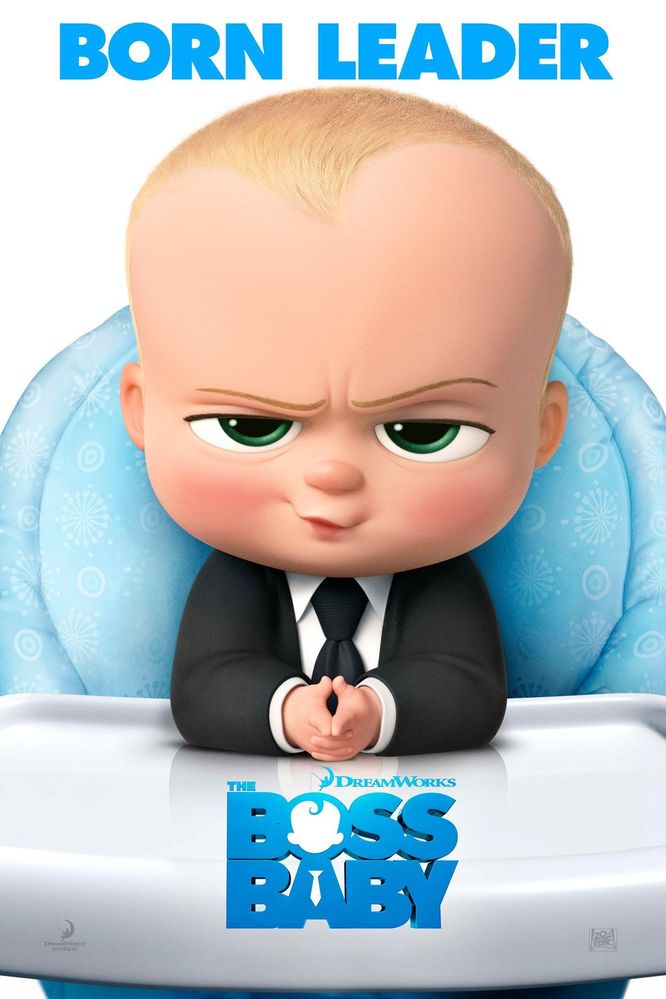
Ok, everyone, I have a harrowing confession. It’s something I’m still shocked by, even weeks after the experience. It’s caused me to question everything I am, everything I know, everything I hold dear. I don’t know how to say this, so I’m just gonna come out and tell you straight. I liked Dreamworks’ “The Boss Baby.”
That’s right, I liked it. A film whose name is somehow MORE gimmicky than “The Young Pope.” A film whose first trailer might be the dumbest, least appealing ad campaign for a mainstream animated film since “Sing!” A film in which Alec Baldwin, voicing a baby who is also a boss, quotes “Glengarry Glen Ross” in a line that contributes nothing, and is barely a joke. All of this is there, and despite this, I liked it. It is legitimately strange, occasionally inspired, and somehow, though all signs pointed to the contrary, people put effort, a great deal of effort, into this.
I liked “The Boss Baby” because its premise, stupid though it may be, comes from a genuine place, and comes close to being a bona fide extended metaphor, the kind that Pixar has made a career out of turning into animated features.
For Pixar, it’s all about what happens when you’re trying to control your own destiny and your mother turns into a bear at the same time (ok, not all of them are great). While Pixar specializes in artfully telling stories, simplifying complex concepts, and exploring the varied emotions of childhood, Dreamworks is more about wacky escapades.
Ogres! Donkeys! Aliens! Zoo Animals! The same face on every poster! A scene where everyone dances! As much as I enjoy the first two “Shrek” films, and the surprisingly affecting “How to Train Your Dragon” films, this is a studio that generally takes silly over substance, and while that’s not a bad thing, the resonance of Pixar at its best isn’t generally reflected. But “The Boss Baby”? It tries. It really tries, it starts from a premise that sounds silly, but is actually rooted in something.
Basically, the Alec Baldwin baby in “Boss Baby” wears a suit and quotes Mamet because in life, when a second child comes into a family (as Tobey Maguire narrates in the film), they become, well, the boss. They get everyone’s attention, everyone works for them, and they “hold meetings” (“sometimes in the middle of the night”). “The Boss Baby” is the first Dreamworks film I’ve ever seen that starts with a legitimate premise, and builds up from there. It isn’t artful or elegant about it, but the idea still feels grounded in something real. It’s a good place to start.
The animation, too, is inspired. We see most of the story through the eyes of Tim Templeton (Miles Bakshi), a kid with an “active imagination.” As a piece of characterization, that may feel like a cop-out, but the film doubles down on it, turning his imagination into the lens through which we see the world. The 2D animation seen through Tim provides a good break whenever the 3D perspective gets stale, and it works! It adds an expressive element that isn’t usually present in a film like this, implementing flat bright colors, pirates and dinosaurs.
Unfortunately, the film presents us with both this imagination lens AND a Boss Baby, never combining the two in the most functional, or rational, way. Instead of illustrating the Boss Baby through Timothy’s imagination, Dreamworks muddles up the stylistic changes. Still, that any of this works at all is a testament to the fact that something here is actually working.
What ultimately wins me over about this disordered, occasionally inspired, genuinely cared-about film is just how goddamn weird it is. There is a montage of babies floating through a series of assembly lines in the sky set to “Cheek to Cheek” in which they are sorted between “family” and “management.” (Naturally, our Baby is sorted into management.) At one moment, the following lines are exchanged:
T: My dad told me that those who can’t do, supervise.
BB: Your dad’s a hippie.
When Timothy asks about the identity of a bespectacled baby ordering people around in Baby Business Land (it’s not the actual name, but it might as well be) and the Boss Baby responds with “that’s my boss, Big Boss Baby,” I howled in laughter and marveled at the strangeness. There’s a reference to Julia Child, another to “Raiders of the Lost Ark.” There’s a scene in which our main characters board a plain filled with Elvis impersonators to get to Los Angeles. There’s a talking Gandalf alarm clock named “Wizzie.”
In the end, “The Boss Baby” has a genuine conceit, visual style, and strangeness. That’s a formula for a good film, or at least an interesting one. I’m still not sure whether “The Boss Baby” is the former, but I’m definitely sure it is the latter. I’m not here to tell you that it is a masterpiece, but somehow, against all odds, it is something worth seeing. For better or for worse, “The Boss Baby” has stayed with me.


Leave a Reply